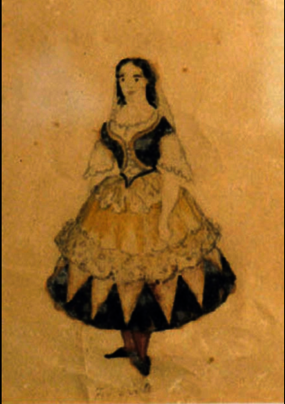Henrik Ibsen staged an opèra comique entitled La Chanteuse voilée (1850) by Eugène Scribe and Adolphe de Leuven a total of thirty-one times during his career as a theater director (1851–64). Scholars have almost universally dismissed the repertoire that Ibsen encountered during these years as irrelevant to his development as a dramatist. As part of her current ERC Advanced Grant project, Ellen Rees has carried out a systematic survey of this repertoire, finding that most of what has been written about it is misleading or incorrect. Moreover, she has discovered that Ibsen engaged in extensive intertextual borrowing from a handful of the popular entertainments it contains in his own contemporary dramas. In this presentation, Rees will focus on Ibsen’s recycling of elements from La Chanteuse voilée in his very last play, Når vi døde vågner (When We Dead Awaken/Quand nous nous réveillerons d’entre les morts) as an example of what Linda Hutcheon calls “modern parody.”
Ellen Rees is a professor of Scandinavian literature at the University of Oslo’s Centre for Ibsen Studies. She has written several books, including two on Ibsen: Ibsen’s Peer Gynt and the Production of Meaning (2014) and Den populærkulturelle Ibsen: En studie i nyere norsk resepsjon (2023). Her next book, Ibsen and the Popular Origins of Modern Drama, will be published by Cambridge University Press in 2026.
